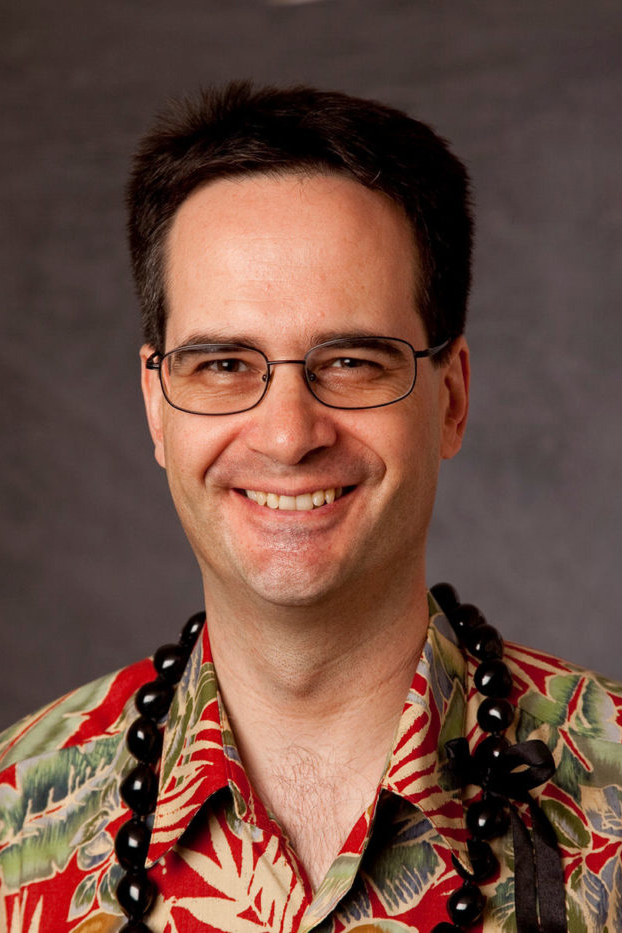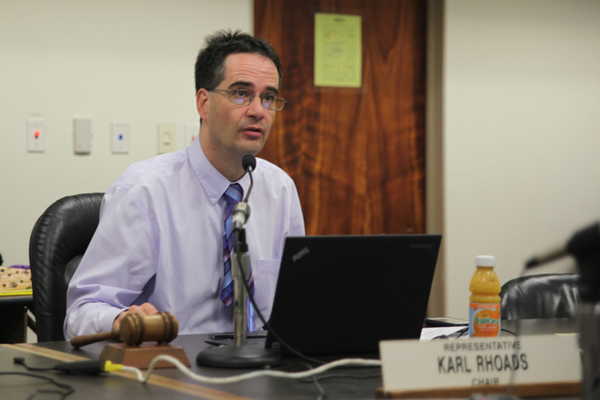Senator Karl Rhoads (D-13), JD '96, has served close to 15 years in the Hawaii State Legislature. He was elected to the Hawaii State House of  Representatives in 2006 and currently serves in the Hawaii State Senate. He is Chair of the Committee on Judiciary and previously served as Chair of the Committee on Water and Land in the Senate. While in the House, he was also Chair of the Committee on Judiciary and Chair of the Committee on Labor and Public Employment.
Representatives in 2006 and currently serves in the Hawaii State Senate. He is Chair of the Committee on Judiciary and previously served as Chair of the Committee on Water and Land in the Senate. While in the House, he was also Chair of the Committee on Judiciary and Chair of the Committee on Labor and Public Employment.
Q&A
Q: Why did you commit yourself to public service?
KR: Before attending GW Law, I worked on Capitol Hill. From that experience, I realized that many of the people who get elected to office and do the most good, stay home. Not always, but a very high percentage of local politicians are able to greatly impact their communities through local politics. I thought it was the place I could do the most good.
Q: What issues have been your main focus while serving in the Hawaii State House and Senate?
KR: The main issues concerning people in my district are housing costs, access to women’s healthcare, crime, and education. As a member of House, I was able to provide funding to keep Kukui Gardens affordable and pay for the construction of the Senior Residence at Iwilei. I also played a critical role in passing emergency contraception for Hawaii residents. During my time in the Senate, we've passed the "Red Flag" bill, which enables family members, co-workers, or police to obtain court orders that would keep firearms from people who are determined to be at high risk of violence using a gun.
Q: What is one of the most important issues currently facing your constituents?
KR: Housing costs are probably heads-and-shoulders above other issues as far as need here in Hawaii. I live on the island of Honolulu, as do about 75% of the population. Because there is not much land and we're a very popular tourist destination there are a lot of hotels that take up space and then, unfortunately, industries like AirBnB have been a problem because an individual can make ten times as much more money renting a room to a tourist than a local resident. These factors put pressure on the housing market and limit the stock available. Our housing prices are actually comparable to DC's, but we don't make near as much because we have a captive labor market.
What this all means in practice is that there isn't affordable housing available for the average person and that our housing costs are a ridiculous percentage of our income. So we do what we can to make sure we have affordable housing stock for residents. That involves making sure we don't lose the affordable housing we have, we financially support agencies that build affordable housing, and we renovate and build higher in public housing areas. It's a neverending battle. I think housing will always be expensive in Hawaii and on Honolulu in particular, but for people who make an average wage here, it's a big deal.
Q: How has your law degree helped in your career in public service?
KR: I’m Chair of the Senate Judiciary now, which has jurisdiction over all criminal laws and just about anything that has to do with legal matters, so we have really broad jurisdiction. I think more importantly than any particular class was the overall background in the law that makes doing the judiciary job a lot easier. Non-lawyers have held this position numerous times in the state of Hawaii, but it’s so much easier to do if you don’t have to have somebody translate for you. I can read through the source material itself and understand what it means.
Q: What advice would you give to students looking to enter local politics?
KR: A really important aspect of getting into politics in being involved in your community. Being in DC, you could get involved in a local Advisory Neighborhood Commission, a condo board, Rotary or Lions Club, or even a bar organization, anything where you’re being involved in helping other people solve the problems of society. Bottom line, be active in your community whatever that looks like for you. Meet as many people as you can and become friends with people and integrate yourself into the fabric of the community. You create a resume by being involved in the community, and then when you run you can tell people what you’ve done already so people don’t feel like you’re there for your own aggrandizement; they'll know you actually care about what’s going on.


